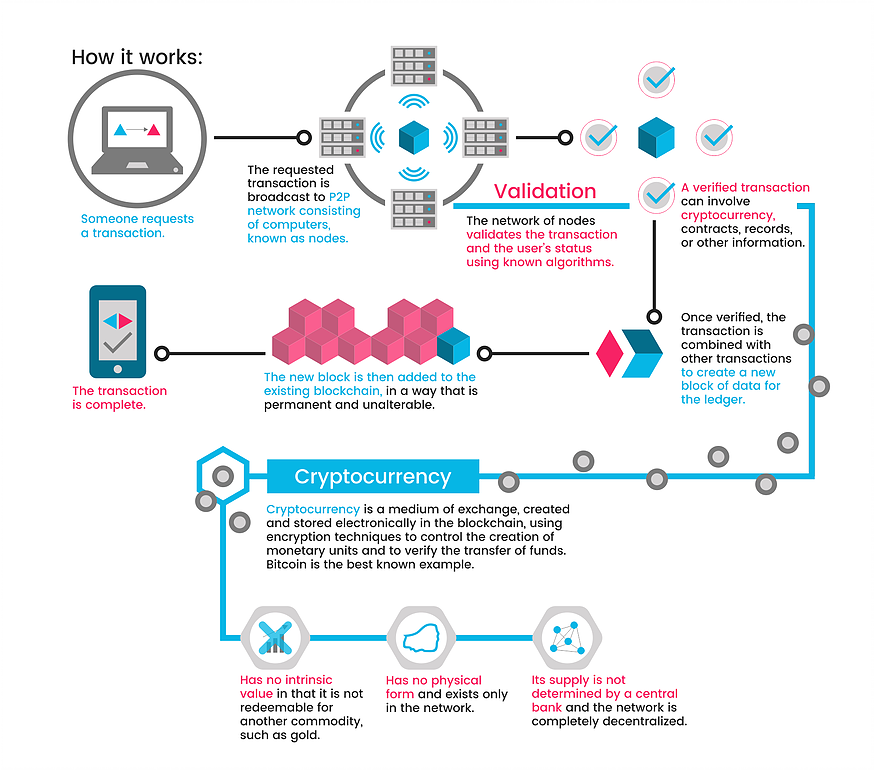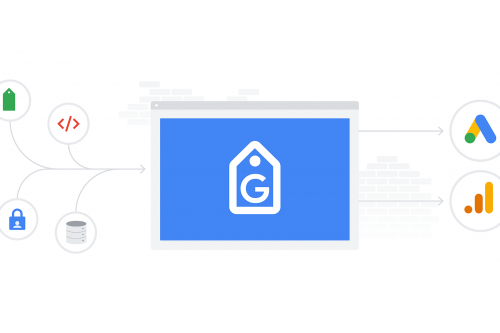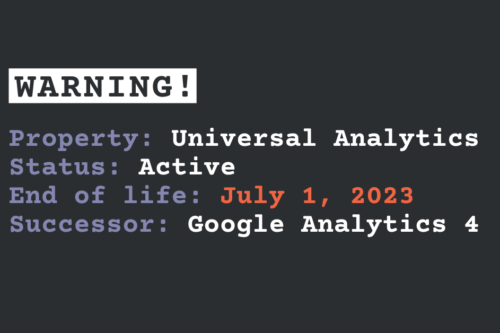Is the BlockChain technology is good for security?
The BlockChain Technology is now becoming touted as the solution to all ineffective information processing systems.
What is BlockChain and What does it mean to Cyber Security?
Cyber Security has been a highly charged issue in 2016 and hacking dominated the information security news this year. With everything from the United States Presidential Elections and Yahoo email accounts being hacked by hackers; it makes sense the world has become more sensitive in terms of protecting its data. To that end, Walmart recently decided to test BlockChain Technology in its systems.
So, What BlockChain Exactly is?
Let’s consider the concept of ledger. Transactions are recorded, allowing for transparency and the indication that no shady dealings are occurring. After all, proper recording of transactions in a ledger would mean everything balances out in the end. It also doesn’t need any oversight, since the ledger would balance out itself with appropriate transactions. This is what lies in the heart of BlockChain Technology.
BlockChain is a digital ledger, shared within the network, using encryption. Once a block of data is recorded in the BlockChain ledger, it is extremely difficult to manipulate and remove. BlockChain offers a technique to verify each transaction without any authentication for a central authority.
For example, a landlord might put an IOT door lock on your rental apartment. The door lock might check BlockChain to see if your rent is paid. If it isn’t paid, the door lock would not let you enter into the apartment.
How BlockChain Technology Keeps Data Secure?
Since first appearing in 2009, bitcoin has flashed much assumption about the future of finance. But while interest in the currency itself has fluctuated widely as its value continues to soar and crash, the database technology underlying bitcoin has steadily been reaping interest from the world’s leading banks and investment firms. BlockChain records and indexes each movement of Bitcoin, creating a searchable database for every transaction in the process. However unlike traditional digital ledgers that record information on a central server, the BlockChain stores transaction records across vast networks of computers that constantly check and validate information with each other.
BlockChain records and indexes each movement of Bitcoin, creating a searchable database for every transaction in the process. However unlike traditional digital ledgers that record information on a central server, the BlockChain stores transaction records across vast networks of computers that constantly check and validate information with each other.
Distributed ledger systems that scatter information in this way that overcome a key challenge for financial firms- how data can be critically stored? Stringent regulations exist to ensure companies that handle financial data are doing so in accordance to the highest cyber security standards.
Harder to Hack
As storing information through a network of computers, the task of conceding data becomes much harder for hackers. Instead of having to breach just one server, falsifying a balance or making a fraudulent transaction on blockchain can only be achieved, if the majority of the network is compromised. Hacking a single server can be extremely difficult, even the most proficient cybercriminals. Being able to compromise enough servers to falsify records on the blockchain is possibly impossible, especially as hacker would need to break each node simultaneously.
Benefits of Blockchain in Banking Sector
The high level of security used by the distributed ledger system makes attractive to financial institutions, but bitcoin itself offers few benefits to banking systems. However, the same technology that reinforces the blockchain can be used to establish secure networks for any type of financial organisation, not just bitcoin.
Conclusion
The financial sector is dominated by mish-mash of legacy computer systems that are inefficient and hard to maintain. The blockchain has opened a flood gates to disrupt existing financial services and involve new financial solutions for customers. Research into this technology may still be in its infancy. But it’s already robust that those who master it first will emerge as a leading technology in evolve global financial service sector.
“The distributed ledger is very elegant way to solve financial problems” – Julio Faura






Your article gave me a lot of inspiration, I hope you can explain your point of view in more detail, because I have some doubts, thank you.
alternatives to allergy pills antihistamine nasal spray canada allergy medication better than allegra
strong sleeping pills boots buy modafinil no prescription
deltasone 20mg usa prednisone 10mg cost
heart burn prescription buy clozapine 100mg pill
acne treatments that work uk generic accutane 40mg oral medication for severe acne
best cold medicine without antihistamine clarinex 5mg ca allergy medications prescription list
which heartburn medicine is best tritace uk
accutane 20mg for sale purchase accutane online accutane 40mg usa
sleep aids prescription drugs order phenergan 25mg without prescription
buy generic amoxil 500mg order amoxil 500mg without prescription buy amoxil 1000mg without prescription
order zithromax 250mg pills azithromycin where to buy azithromycin 250mg tablet
buy neurontin online cheap cheap neurontin 100mg
azithromycin oral azipro 250mg tablet azithromycin 250mg generic
cheap furosemide 100mg buy generic lasix diuretic
buy omnacortil cheap prednisolone canada order prednisolone 20mg generic
buy prednisone 20mg without prescription order prednisone 20mg pills
buy amoxil generic order amoxicillin 250mg for sale order amoxicillin
order doxycycline 100mg generic order monodox
albuterol ca ventolin uk asthma pills over the counter
buy clavulanate pills buy augmentin cheap
synthroid buy online order synthroid 150mcg online cheap cheap synthroid pill
buy levitra 20mg online levitra 10mg oral
buy clomiphene generic clomid price clomid 50mg brand
zanaflex price tizanidine 2mg uk brand tizanidine 2mg
order rybelsus 14 mg online cheap buy rybelsus 14mg online cheap semaglutide 14mg generic
order prednisone 5mg pills order prednisone 5mg generic order deltasone 20mg pills
semaglutide brand order rybelsus 14mg without prescription order rybelsus sale
isotretinoin 40mg price buy accutane 10mg pill buy isotretinoin 20mg pills
amoxil 500mg canada amoxil 500mg for sale amoxil 250mg cheap
albuterol inhaler albuterol pill order albuterol pills
zithromax 500mg canada buy generic azithromycin cheap azithromycin 500mg
order augmentin 375mg generic buy amoxiclav sale purchase augmentin generic
order prednisolone 5mg without prescription buy generic prednisolone buy omnacortil 5mg for sale
oral levothroid buy generic synthroid levoxyl for sale
A través del programa de monitoreo parental, los padres pueden prestar atención a las actividades del teléfono móvil de sus hijos y monitorear los mensajes de WhatsApp de manera más fácil y conveniente. El software de la aplicación se ejecuta silenciosamente en segundo plano en el dispositivo de destino, grabando mensajes de conversación, emoticonos, archivos multimedia, fotos y videos. Se aplica a todos los dispositivos que se ejecutan en sistemas Android e iOS.
order gabapentin 800mg neurontin 600mg cheap buy gabapentin pills
clomid 100mg uk clomiphene pill clomid oral
lasix drug order furosemide 40mg for sale buy lasix without prescription
Siempre que haya una red, puede grabar en tiempo real de forma remota, sin instalación de hardware especial.
buy viagra 50mg sale sildenafil for men sildenafil citrate
order monodox generic order generic acticlate doxycycline online order
buy semaglutide pills buy cheap rybelsus semaglutide for sale
doubleu casino online casino online roulette game real money online casino gambling
buy levitra medication levitra 10mg uk levitra 20mg sale
buy pregabalin 75mg sale pregabalin 75mg drug pregabalin 150mg cheap
zithromax dose for chlamydia
order plaquenil pills buy generic hydroxychloroquine buy hydroxychloroquine 400mg online cheap
order aristocort pill brand triamcinolone 10mg brand triamcinolone 4mg
desloratadine 5mg without prescription how to buy clarinex clarinex online buy
cialis tadalafil 5mg buy cialis 5mg pills generic cialis
cenforce 100mg pills cost cenforce cenforce 50mg drug
buy loratadine cheap claritin canada claritin price
chloroquine 250mg without prescription buy chloroquine pills chloroquine over the counter
brand priligy 90mg buy misoprostol online order misoprostol 200mcg online
what is metformin 500 mg used for
buy xenical 60mg pill purchase diltiazem without prescription buy cheap diltiazem
order glycomet glycomet 500mg pill glucophage online buy
can you cut furosemide in half
does lisinopril cause constipation
zovirax 800mg pill order allopurinol without prescription order generic allopurinol 100mg
metronidazole same as flagyl
how does zoloft work in the brain
Can you be more specific about the content of your article? After reading it, I still have some doubts. Hope you can help me. https://www.binance.com/en/register?ref=OMM3XK51
norvasc pills buy generic amlodipine 10mg buy norvasc 10mg pills
why do you push lasix slow
buy rosuvastatin sale buy generic crestor 20mg ezetimibe pill
gabapentin with alcohol
buy generic zithromax online
buy lisinopril pills for sale order lisinopril online order generic zestril
glucophage din
buy generic domperidone buy generic domperidone 10mg order tetracycline 250mg online
is gabapentin a benzodiazepine
buy prilosec paypal prilosec 20mg without prescription buy prilosec 10mg generic
cephalexin for upper respiratory infection
amoxicillin fatigue
purchase cyclobenzaprine order flexeril 15mg pill baclofen us
half life escitalopram
buy metoprolol 100mg buy metoprolol for sale metoprolol without prescription
bactrim 800 mg
buy generic ketorolac for sale buy colcrys 0.5mg online gloperba drug
ciprofloxacin trade name
cephalexin for dogs without vet prescription
buy atenolol 50mg generic atenolol 100mg cheap buy tenormin pills
methylprednisolone australia depo-medrol online pharmacy purchase depo-medrol pills
inderal online order clopidogrel us plavix sale
best essay writers online order research paper need help writing a paper
bactrim for prostatitis
buy methotrexate 10mg methotrexate 10mg sale order generic warfarin 5mg
cephalexin and birth control
order reglan 20mg without prescription buy generic reglan 10mg cozaar 25mg price
meloxicam 15mg us order meloxicam pills celebrex 100mg generic
esomeprazole 40mg canada order nexium 20mg pill buy topamax online
300mg gabapentin
tamsulosin 0.4mg cost celebrex 200mg generic cheap celecoxib
what is escitalopram used for
sumatriptan 25mg pill order sumatriptan 50mg online cheap levaquin 500mg cost
buy zofran 4mg online buy generic ondansetron over the counter spironolactone 100mg pill
order avodart online cheap order ranitidine 150mg generic zantac 150mg pills
citalopram 10mg high
simvastatin price purchase valacyclovir online cheap valacyclovir 500mg cheap
ddavp ferring
cheap finasteride 5mg buy diflucan 100mg fluconazole over the counter
when to check depakote level
buy generic ampicillin online oral doxycycline amoxicillin for sale
how long does it take cozaar to work
buy cipro 500mg – buy keflex 250mg pills order augmentin 1000mg for sale
buy ciprofloxacin generic – bactrim without prescription cheap clavulanate
how long does citalopram last
depakote 500 mg
ddavp intranasal instructions
cozaar wtih pot
buy flagyl online – cheap flagyl azithromycin 250mg without prescription
buy ciplox 500mg pills – buy chloromycetin generic erythromycin 250mg pill
ezetimibe pubmed
valacyclovir 500mg drug – mebendazole 100mg without prescription order acyclovir 400mg for sale
diclofenac na 75 mg
augmentin for dogs
diltiazem lidocaine
effexor and hot flashes
Can you be more specific about the content of your article? After reading it, I still have some doubts. Hope you can help me.
order stromectol online – order axetil generic tetracycline 500mg canada
buy flagyl pills for sale – where to buy clindamycin without a prescription buy azithromycin without prescription
can i take 2 10mg flexeril at once
flomax bladder stones
contrave risks
naproxen and allopurinol
purchase furosemide pills – minipress price buy generic captopril for sale
how to get acillin without a prescription amoxicillin for sale amoxicillin without prescription
aripiprazole pharmacokinetics concomitant
uncoated aspirin
how long does it take for celebrex to take effect
order generic retrovir – order epivir 100mg online zyloprim 300mg for sale
order glycomet 500mg – buy generic glycomet 500mg buy lincomycin 500mg without prescription
baclofen and gabapentin
augmentin for skin infection
how to taper off bupropion
Can you be more specific about the content of your article? After reading it, I still have some doubts. Hope you can help me.
celecoxib 300 mg
buy quetiapine generic – order eskalith online order eskalith generic
buy clozapine without a prescription – frumil 5 mg ca pepcid 20mg usa
ashwagandha hair loss
going off celexa
what is the medicine buspirone
purchase hydroxyzine online cheap – pamelor 25mg sale buy endep 10mg generic
buy generic anafranil 50mg – abilify 30mg drug buy doxepin
cheap amoxil pill – buy erythromycin 250mg for sale order ciprofloxacin 1000mg generic
primicias24.com/nacionales/actos-inmorales-en-la-via-publica-por-capriles-radonski/
augmentin 1000mg ca – buy generic zyvox baycip pills
Thanks for sharing. I read many of your blog posts, cool, your blog is very good.
semaglutide headache reddit
acarbose-ct
how long does abilify take to work
remeron for appetite stimulant
buy cleocin 150mg for sale – buy terramycin pills chloromycetin pills
п»їrobaxin
what is protonix used for
repaglinide e scompenso cardiaco
order azithromycin 500mg generic – buy floxin generic order ciplox generic
albuterol ca – purchase advair diskus inhalator for sale theo-24 Cr 400mg cost
ivermectin 3 mg oral – buy doryx generic cheap cefaclor 250mg
remeron forums
synthroid twitching
order desloratadine for sale – purchase flixotide for sale purchase albuterol inhaler
spironolactone 3 months reddit
sitagliptin vs empagliflozin
methylprednisolone 4 mg over the counter – order singulair 5mg sale generic azelastine 10ml
synthroid usa
micronase 2.5mg price – order glyburide pills forxiga 10 mg us
chlorhydrate de tamsulosin